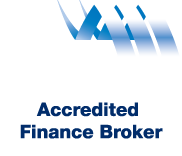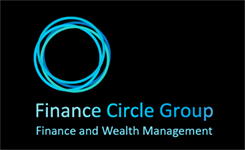CAR & ASSET FINANCE MELBOURNE
What is Asset Finance?
Asset finance is a type of lending that gives you access to business assets such as cars, trucks, equipment, machinery and other business vehicles that enables you to release cash from the value in assets you already own.
Asset finance includes:
- Chattel Mortgage
- Equipment leasing
- Hire purchase
- Finance leases
- Operating leases
- Asset refinance
Asset finance is a broad category that relates to valuable items in your business. Generally speaking there are two types of asset finance — lending secured against existing assets, and equipment finance to get additional assets.
An ‘asset’ can be almost anything, whether it’s ovens and refrigeration for a catering company or a haulage firm’s fleet of vehicles — and with a wide choice of alternative lenders across the market, you can find asset finance for almost anything.
Get a Call Back From One of Our Experts

New Car Finance

Used Car Finance

Truck Finance

Forklift Finance

Heavy Machinery Finance

Printing machines Finance

medical equipment Finance

Cranes & Other Equipment
Quick snap short of different types of asset or equipment finance
Equipment loan (chattel mortgage)
- Own it now and pay it off
- For cars and equipment
- No GST on loan repayments
Hire purchase
- Hire it and own it later
- Fixed term
- For cars and equipment
- Customise your repayments
Finance lease
- Lease it and offer to own it later
- For cars and equipment
Novated lease
- Lease through salary sacrifice
- For cars
- Unlimited personal use of the car

COMPARE AND SAVE
Asset finance to get new assets and equipment
Paying cash up front for brand new equipment or machinery can be expensive, and could be a risky move that causes cash flow problems. And some companies simply don’t have the working capital for a big purchase — that’s where equipment finance comes in.
Chattel Mortgage
A chattel mortgage is a formal term that refers to a finance agreement that provides funds to purchase an asset and the finance provider accepts that financed asset as the security for the credit.
When it comes to car and equipment finance, a chattel mortgage is a popular option among business owners and operators. Some finance providers, including CommBank, might call it a car or equipment loan.
A chattel mortgage has a similar structure to a fixed rate traditional home loan or mortgage. A finance provider uses the car or equipment you get as the security for your loan. Chattel refers to the car or equipment, and mortgage refers to the loan.
Unlike a Hire Purchase or a Finance Lease, an Equipment Loan gives you ownership right away and you then pay off the loan from the income the asset generates in your business. If you’re unable to meet your repayments, your finance provider may be able to repossess your car
or equipment.
Hire purchase
Hire purchase is a simple way to purchase an asset and spread the cost over time. You pay in instalments, which means the item appears on your balance sheet, and because you own the asset you’ll be responsible for maintenance and insurance costs — but you’ll also have full ownership of the item after the term ends.
Equipment leasing
The lender buys the asset you need, and rents it to you on a lease. That means you have it straight away, and only need a fraction of the total amount up front. Generally, you have to pay the first month’s rent, spreading the GST over the whole period. At the end of the lease, you can either continue leasing the item, buy it outright at an agreed price (factoring in money already spent), upgrade to a new piece of equipment on a new lease, or simply return it.
Many businesses find leasing a good arrangement because as well as spreading the cost over time, you can adapt to your company’s situation. For example, say a delivery company leases a van, and at the end of the term business is booming — they could get a larger vehicle on a new lease, or a package deal for multiple vehicles.
Finance leases and capital leases
A finance lease, or capital lease, falls somewhere between hire purchase and equipment leasing. It’s a longer-term lease designed for most of the asset’s life.
You get full use of the asset and pay for the full value over time, but don’t technically own it — so it does not appear on your balance sheet. That means it’s possible to offset rental costs against profit and claim GST — which could be tax-efficient depending on your situation.
Operating leases and contract hire
Operating leases, or contract hires, are a more familiar form of equipment leasing. An operating lease is basically a rental agreement with a set term, and maintenance will normally be handled by the lease company (or ‘lessor’). Like finance leases, an operating lease won't appear on your balance sheet (which might confer some tax benefits), but operating leases can be cheaper because you don’t pay for the full value of the item.
Asset refinancing
Asset refinancing is the process of securing a loan against valuable items that your business owns, like buildings, vehicles or equipment. It’s a simple idea — if you can’t keep up payments on the loan, the lender takes the asset to recoup what’s owed.
Because you’re effectively ‘unlocking’ cash, the amount you can borrow depends on the value of the assets involved. Asset-backed lending is sometimes used for debt consolidation. Some lenders specialise in one particular area of asset refinance, while others can finance almost anything that has a resale value. There’s a wide range of asset finance products available, and it can be a very flexible arrangement. However, there are a few restrictions: usually the asset has to be critical to your operations, and it must also be removable so it can be taken as security for the loan.
MORE ABOUT CHATTEL MORTGAGE
What is a Chattel Mortgage?
A chattel mortgage is a formal term that refers to a finance agreement that provides funds to purchase an asset and the finance provider accepts that financed asset as the security for the credit. When it comes to car and equipment finance, a chattel mortgage is a popular option among business owners and operators. Some finance providers, including CommBank, might call it a car or equipment loan.
A chattel mortgage has a similar structure to a fixed rate traditional home loan or mortgage. A finance provider uses the car or equipment you get as the security for your loan. Chattel refers to the car or equipment, and mortgage refers to the loan. Unlike a Hire Purchase or a Finance Lease, an Equipment Loan gives you ownership right away and you then pay off the loan from the income the asset generates in your business.
If you’re unable to meet your repayments, your finance provider may be able to repossess your car or equipment.
What are the benefits of a chattel mortgage?
- Repayments can be structured over a range of terms – usually 2 to 5 years
- Interest rates are usually lower than unsecured loans and can be fixed or variable
- Repayments can be fixed at the same amount each month or can be structured to fit your seasonal cash flow requirements (fixed rate)
- You own the financed asset up front so it appears as an asset on your balance sheet as well as the finance showing as a liability
- A balloon or residual payment can be set at the end of the term to lower your monthly payments
What’s a balloon payment?
A balloon payment or residual amount is an amount that is not paid off until the end of your agreement. The higher the balloon payment, the lower your monthly repayments. Keep in mind that higher balloon payments will increase the amount of interest you pay over the loan period, as you won’t be paying down the principal as quickly.
You might choose to have a balloon payment if you prefer to keep repayments lower for cash flow purposes. It’s important to make sure any balloon payment you agree to is likely to be manageable at the end in case you want to simply sell the asset and pay off the finance.
Tax implications
With a chattel mortgage, the goods and services tax (GST) inclusive purchase price of the car, truck, forklift or equipment is financed and you’re entitled to claim an input tax credit up front.
You may also be able to claim interest and depreciation costs depending on how much you use your car or equipment for business use.
It’s a good idea to seek advice from your accountant regarding your circumstances and tax impacts.
Are there other considerations?
As with all financing agreements, it’s important to measure up how long you expect to use the equipment or vehicle in your business, its effective life and your cash flow expectations. The best possible finance package comes down to negotiating both the cost of the vehicle or equipment and the finance charges. Saving money on financing business equipment can often come down to the amount you are financing and total repayments, not necessarily the cheapest interest rate. Make sure you consider both of these as separate items when comparing your options.
It’s also important to find out if there are any additional fees and charges or any monthly fees charged for setting up the finance and managing it during the term.
FAQs
What are the benefits?
Benefits include:
- Flexible loan repayment periods, ranging from one to seven years
- You may have the option to reduce the monthly repayments by setting a final balance (residual value or balloon) payment between 0 and 50 per cent. This may depend on the type and age of the vehicle.
- The potential to claim tax deductions if the car is being used for business purposes*
- The potential to claim Input Tax Credits if you are registered for GST*
A chattel mortgage taken out with Finance Circle Group also has these additional benefits (subject to lender selection):Fixed interest rate and monthly repayments for the duration of the loan - Repayments can be aligned with your or your business’ cash flow
What tax and GST can I expect to pay?
If the car is being used for business purposes, you may be able to claim a tax deduction on the loan interest charges, as well as on the depreciation value of the vehicle, up to the Depreciation Limit set by the Australian Tax Office. Speak to your accountant to find out more.
Who would it suit?
Both businesses and individuals are eligible for a chattel mortgage, as long as the car is being used predominantly for business purposes.
A chattel mortgage is a good choice for those who are registered for GST on a cash accounting basis, as you should be able to claim the GST from the vehicle’s purchase price as an Input Tax Credit on your next Business Activity Statement.
What is a chattel mortgage and how does it work?
A chattel mortgage involves a finance company lending you the money to purchase a vehicle that will be primarily used for business purposes. Set repayments are then made on a monthly basis.
You’ll own the vehicle outright, however, the finance company will place a “mortgage” over the vehicle, as security against the loan.
Once the loan and any Residual Value (the final balance on the vehicle) has been repaid, the finance company will remove the mortgage. Alternatively, you can choose to re-finance the Residual Value or trade the vehicle in.
Get a Call Back From One of Our Experts
Benefits of taking out a chattel mortgage over a consumer car loan
Chattel mortgage can give you significant financial advantages over taking out a consumer car loan
Are you a business owner?
A chattel mortgage may give you significant financial advantages over taking out a consumer car loan. If you are looking to buy a vehicle used primarily for business (50% or more) a chattel mortgage may be your best option. In most cases a consumer loan must be taken out by an individual, not a company. The main reason why chattel mortgages differ from consumer car loans is that your financier will secure the loan using the “chattel,” or vehicle you intend to purchase. The buyer takes ownership of the car upon purchase and once you pay the loan off, the mortgage is removed – much like a “traditional” mortgage. Since a chattel mortgage is a business transaction, you can claim depreciation and other benefits reserved for business customers.
Lower interest rates compared to consumer loans
Since consumer loan products include account keeping fees and other charges, a chattel mortgage is largely free of these costs. As the loan is secured to a vehicle, this gives the business owner an overall lower interest rate than unsecured loans.
GST, depreciation and interest can be claimed back
One of the greatest benefits to owning your next business car with a chattel mortgage is the ability to instantly claim the GST paid on your car through your next Business Activity Statement (BAS.) You can also claim depreciation and interest with certain types of chattel mortgages. You may be eligible to claim back the full input tax credit. Speak to your accountant to find out more.
Flexible terms, residuals and options to include extras
Chattel mortgages can be structured like consumer loans where you pay them off regularly until the loan is paid off. You may also opt for a residual value payment, also referred to as a balloon payment, at a nominated time. Terms can range from 12 to 60 months. In some cases, terms can be extended longer than 60 months. You may also add extras such as insurance to the mortgage.
Doesn’t jam your cash flow
If you have a trade-in or wish to pay a deposit against the car, the choice is also yours. In many cases, you or your company is not under any obligation to fund the car at any stage. This means you can better structure your cash flow and account for future repayments.
Chattel mortgages are not regulated
Though there are many benefits to chattel mortgages, a chattel mortgage is not regulated by the National Consumer Credit Protection Act (NCCP Act.) This removes some of the credit checks which licenced credit providers are required to undertake by law. The NCCP Act prohibits predatory lending, such as approving loan products to people who have no chance of paying a loan back. Likewise, the borrower is vulnerable to a lack of consumer protections such as a clear and concise understanding of the loan terms, fees or charges like consumer loans.
Finance Circle Group can help you with chattel mortgages
If you are looking for a car finance in Melbourne, Finance Circle Group are a team of financial professionals that can help you and your business through the ins and outs of chattel mortgages or any asset finance or equipment finance. We offer a no-obligation consultation over the phone, answering all your questions. If your business needs a hassle- free chattel mortgage with some of Australia’s most competitive interest rates, contact Finance Circle Group today.

Finance Circle Group is a credit representative (501427) of Finconnect (Australia) Pty Ltd, ABN 45 122 896 477 (Australian Credit License 385888).
Contact Us
Email us:
Info@financecirclegroup.com.au
Call us:
0401976188
